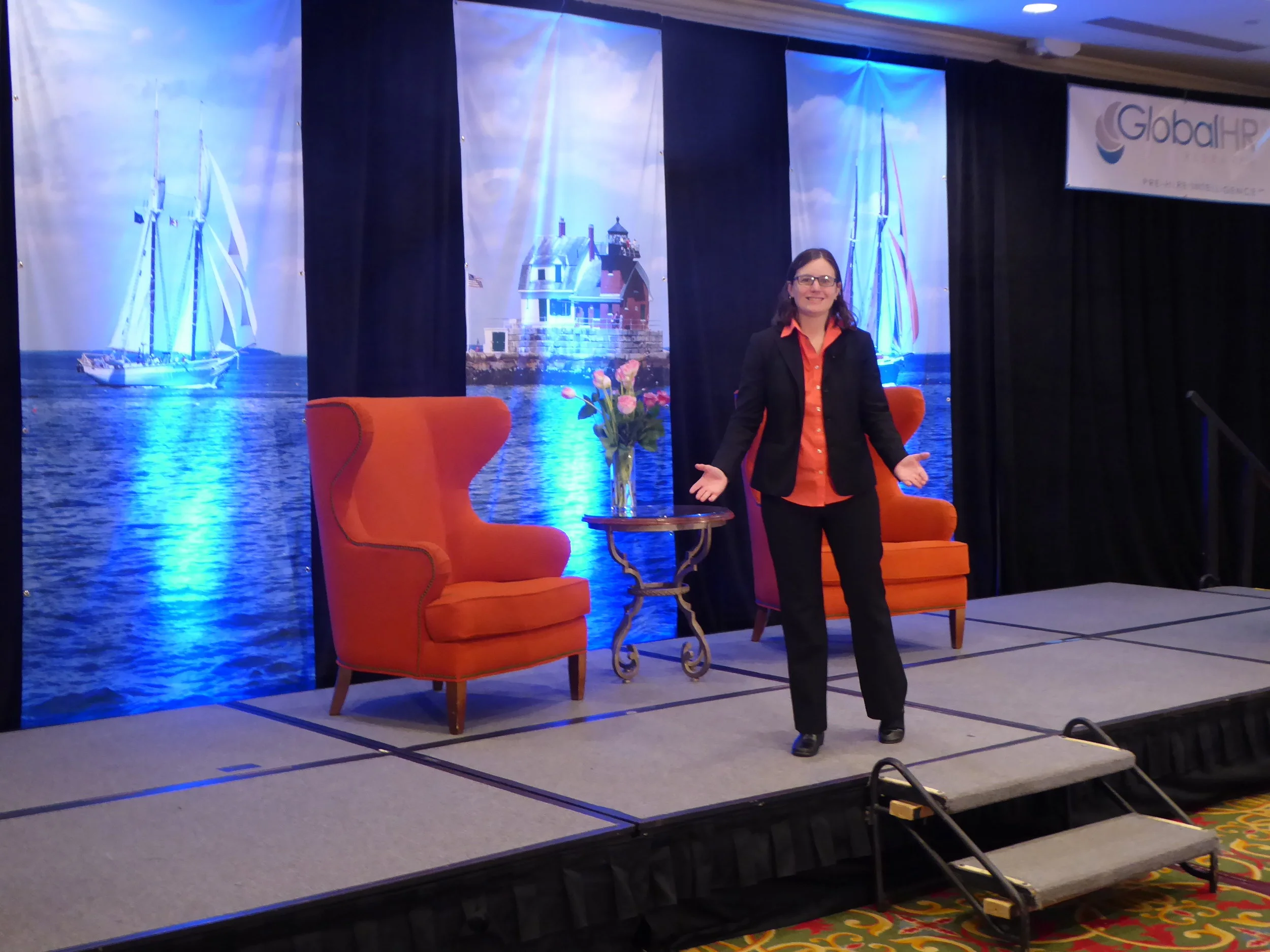Career coaching is a resource that people can use throughout the chapters of their professional life. Whether you are looking for your very first job or are a CEO looking to retire and start that next chapter in your life, my clients have received a lot of value from career and transition coaching.
Read More“...The content you are pushing out is really impressive. This is really admirable. There are people like me, years behind you, that you are inspiring whether you know it or not.”
Since re-branding my company, Sarah Scala Consulting, a few months ago, I realized that I am using a lot of technology and systems to support the business! I began to feel overwhelmed with managing the day-to-day operations and all the marketing systems. Through conversations with my SCORE mentors, a spreadsheet was created showing the current-state and future-state of the systems. This analysis also included the frequency of use.
Read MoreCan you give me some tips on starting a small business? I am asked this question weekly from people who are curious about entrepreneurship. Some have a defined business strategy, and are simply looking for tips.
Read MoreWith clients in 9 US States and 4 countries, I travel some of the time. Striving for continuous learning, I often listen to podcasts and audio books, and watch vlogs that provide solutions, strategies, and motivation for running my small business, Sarah Scala Consulting. Here are 5 business Podcasts and Vlogs that I am currently listening to and recommend for entrepreneurs and business leaders.
Read MoreMentor Programs with some formality can provide great benefits to the organization and its people. I have designed mentor programs to reduce turnover, strengthen cultural immersion for new hires, develop high potential leaders and talent, as well as a development tool in succession planning.
Read MoreMentor programs are typically designed through formal or informal means. Informal mentoring can happen throughout various levels within an organization. The benefits of a less formal program are that they are often organic and happen throughout the organization without needed staff resources. They are flexible and can be started or ended easily. If the mentor and mentee are not the right fit, it is simple to stop the guidance. These programs are very simple, and add huge value to the business!
Read MoreMentoring is defined as a strategic approach to developing a person by partnering them with a more experienced person to teach, coach, council, sponsor, and encourage. Peer mentor programs are unique in that they often lack structure, defined length, or formal training. I currently have four peer mentors that I rely on to give me feedback and to help me move through challenges, learn, and grow.
Read MoreFIRO-B stands for Fundamental Interpersonal Relations Orientation - Behavior. The FIRO-B assessment was created in the 1950’s by Will Schulz to predict how members of the military would interact. Learning about needs has been important for intact or cross-function teams because it helps members to understand what each member of the team personally needs. The assessment measures Wanted and Expressed Inclusion, Control, and Affection. It is helpful to be aware of your own needs and the needs of your team members in order to successfully collaborate.
Succession development is a key part of the succession process. Designing a 2-5 year development plan for those who have been identified as high performers with high potential (High potentials (Hi-Po)) has been very helpful for my clients and their organizations.
Read MoreI look at succession in two stages; succession planning and succession development. This blog will focus on the planning part. Succession planning is a process of identifying current and future leaders of your organization. This is sometimes done using a 9-Box Grid or performance and talent management software. The purpose of succession planning is to ensure that organizations have identified potential future leaders and take a look at what gaps or skills need to be developed to prepare these future leaders to step into a higher or a different level role.
Read MoreEach year I try to read at least 50 books. It is an optimistic goal, and one that I have met or exceeded for the past 10 years. The following 5 books are my favorites on the topic of Leadership Development. Some are older classics and others are fairly new. What books do you always turn to or recommend on the topic of leadership? Leave a comment below to share.
Read MoreLearning about coaching and how it impacts the brain fascinates me! I studied and completed research during the past few years to better understand different approaches to coaching and how they may impact my clients neurologically. I am not a neurologist, and the simple idea that coaching can produce results visible on a functional magnetic resonance imaging (fMRI) is awesome!
Read MoreLast week I led a keynote workshop Mentoring: Informal Formal, and Impactful at the Maine HR Convention. Over a hundred participants attended this workshop. Participation was strong and lots of HR leaders had questions about how to effectively design in Mentor program for their organizations to have a positive impact and a strong return on investment.
Read MoreI first learned about coaching with the Positive Emotional Attractor (PEA) and Negative Emotional Attractor (NEA) through the courses “Inspiring Leadership through Emotional Intelligence” and “Conversations That Inspire: Coaching Learning, Leadership and Change” at Case Western Reserve University (CWRU) Massive Open Online learning Courses (MOOCs). The goal of coaching is to support positive behavior change. Compassion coaching is focused on the coachee’s vision and ideal self, while Compliance coaching focuses on the organization’s objectives and goals (CWRU, 2014).
Read MoreA client once asked me what the best learning resources were to support their competencies. The Human Resources department had a high level of requests for outside training courses, conferences, books, and resources, and HR was overwhelmed trying to decide which resources would add the most value, be most appropriate, and cost effective. We designed a guidebook listing the top resources for each competency so that HR and managers would have a source to be used both during development planning and annual reviews, as well as for when employees asked for more learning and development.
Read MoreWhere did Grit come from? Angela Duckworth, a former management consultant who became a New York City Public School teacher, realized that IQ wasn’t the only thing differentiating successful students from those who were less successful. Through research, she discovered that grit is the differentiator, not just for elementary students, but for students at the United States Military Academy at West Point and for employees in businesses.
Read MoreResilience has become a hot topic recently in business. Organizations face constant change that can be unsettling to leaders and employees. Years ago, I read the book Flourish by Dr. Martin Seligman (University of Pennsylvania). Known as the founder of Positive Psychology, Seligman’s research, detailed in this book, explains the importance of resilience. Since then, I have studied and taught business leaders and organizations ways to strengthen resilience, especially through challenging organizational change. Unlike IQ, resilience is a skill that can be taught and developed. Seligman’s work produced a model for resilience called PERMA.
Read MoreWhether consulting to leadership teams on how to navigate through change or during executive coaching with a leader who feels stuck, the one topic I often begin with is optimism. I will ask if they feel optimistic about the future, and how they manage to maintain an optimistic outlook. As a leader, if you project doubt or a “glass half empty attitude”, your teams will quickly see this in your behavior. Positive people smile more and frown less.
Read MoreWhen businesses are planning a merger or acquisition, often the focus is on the financial and logistical details. Obviously, these are important factors. However, I find that when businesses do not think through the emotional impact on their employees and leaders, the process is often more difficult and less successful.
Read More
















